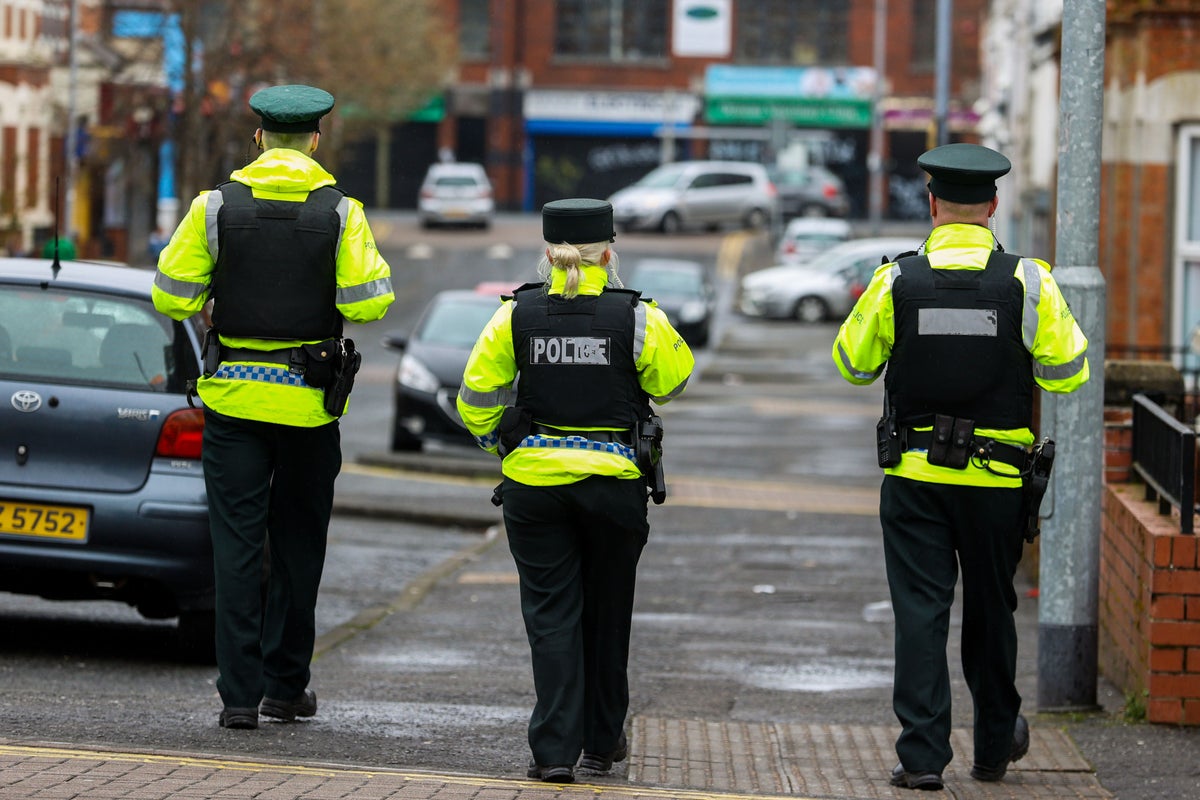
Police officers in Northern Ireland could be forced to move homes and quit their jobs over security fears caused by a “monumental” data breach, a senior policing figure has warned.
The Police Service of Northern Ireland (PSNI) has apologised after the identities of some 10,000 officers and staff were published online in response to a Freedom of Information request asking for details on the number of police officers and staff in the force.
In the force’s published response – potentially visible to the public for up to three hours – a table was embedded which contained the rank and grade data, but also detailed the surnames, first name initials, location and departments for all PSNI employees.
Liam Kelly, chair of the Police Federation for Northern Ireland (PFNI), which represents rank-and-file officers, told the BBC’s Today programme he had been “personally inundated with officers who are outlining that they are shocked, dismayed and basically angry that this has happened”.
“Our officers go to great lengths to protect their identities. Some of them don’t even tell their close friends and associates that they are actually in the police,” he said, adding that in his 29 years of policing he has “never experienced something like this”.
Speaking to Sky News, he warned that some police staff could have to move homes “and may not be able to continue in their current roles”, which he conceded could have an operational impact on the force as a whole.
Ian Acheson, a senior adviser at the Counter Extremism Project, told The Independent that “police officers in Northern Ireland don’t need much of an excuse to look for another job at the moment”.
“You’ve got to see this in context – not just of the security situation and the severe threat from dissident Republican terrorists – but also in relation to swingeing budget cuts, which the chief constable has said will result in falling numbers of officers,” Mr Acheson said.
PSNI Chief Constable Simon Byrne is reported to be on holiday
(Liam McBurney/PA)
“So when you add that to the fact that their own organisation cannot even protect them and their personal data from being released, I think you’d get quite a big push factor there for people to say, ‘well, this is just not worth it for me’.”
Even if “bad actors” have not gained access to the information while it was visible, “terrorists will use the possibility” that they have seen it, to capitalise upon its “psychological, manipulation and propaganda value, and all of that just increases the pressure day-to-day on police officers”, he added.
While police chiefs have stressed that no addresses have been released in the breach, Mr Acheson said: “Northern Ireland’s the size of Yorkshire … It’s a very intimate community, and police officers can only live in certain areas.”
Pointing to the “very severe threat from dissident republican terrorists who have got form for trying to murder police officers”, he added: “This isn’t a kind of fantasy. I think the anger and fear is legitimate and authentic in this case.”
The threat level in Northern Ireland was raised to “severe” by MI5 in March, a month after senior detective John Caldwell was shot by gunmen while coaching children’s football in County Tyrone.
Earlier this year, Chief Constable Simon Byrne said he receives briefings almost every day about plots to attack and kill his officers, adding that the ongoing threat from dissident republicans remains a “real worry”.
Mr Byrne is understood to be on holiday, but has been informed of the data breach and is being kept updated, while the Northern Ireland Policing Board will hold a special meeting on Thursday to discuss the data breach.
More follows…
